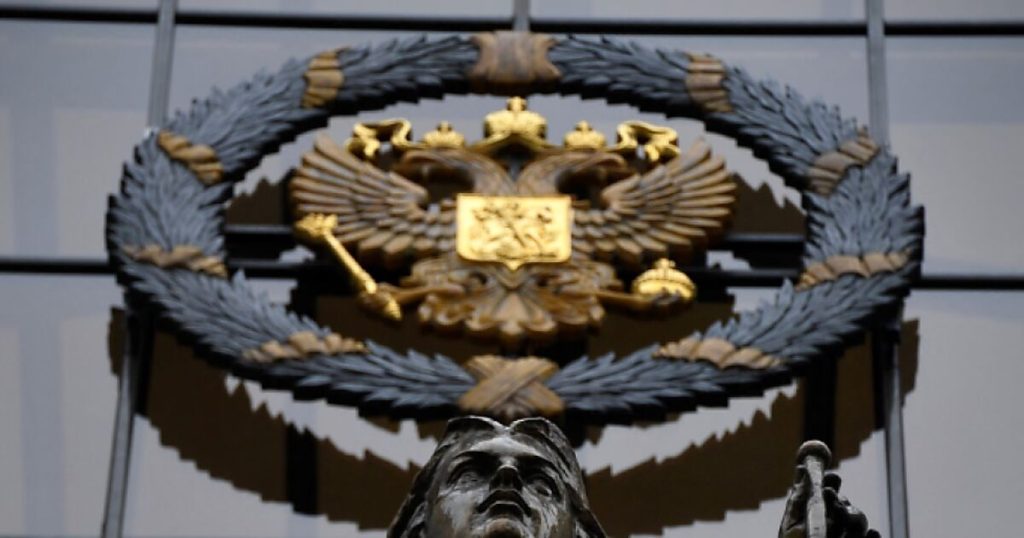Several hours after Thursday’s hearing, the Moscow Supreme Court surprisingly postponed the Memorial International case. Memorial’s lawyers had previously spoken in court against the dissolution of the famous human rights organization, an order that had been requested by the Russian Prosecutor’s Office. On December 14, the activities of the NGO will be discussed in detail at another court hearing.
The Russian Prosecutor General’s Office accuses Memorial International of repeated violations of the “Foreign Agents” law and therefore demands its liquidation as a legal person. Regarding subsidies from abroad and alleged political activity, the NGO, which was started by dissidents in 1987 and specializes in dealing with the Soviet past, was declared a “foreign agent” in 2016.
In parallel with the dissolution of the central structure of “Memorial”, the Moscow Prosecutor’s Office also requested the dissolution of the Memorial Center for Human Rights. On November 29, the Moscow City Court will deal with this issue further.
“There is great interest among members of the secret services within the leadership to ban this NGO, but there are also voices in the presidential office that consider this an unnecessary escalation, which would contribute to a further deterioration of relations with the West,” Insbrucker political expert Gerhard Mangot explained Thursday in an interview. with APA.
He emphasized that with the ban on Memorial International and its human rights center, an important NGO that has been monitoring the human rights situation for more than 30 years and dealing with and searching for Stalinist crimes in the Soviet Union will disappear.
He said the Memorial is in fact relatively decentralized and in the event of Prohibition, regional branches would likely continue operating under a new name. “But it will undoubtedly be a setback and will be an expression of the sharp wave of repression by the Russian leadership against journalists, the media and non-governmental organizations, which has been going on for more than a year,” he said.
Mangot did not trust himself to predict the outcome of the legal proceedings. However, he did not want to rule out the possibility of their employment.
Mangot said regarding Austrian reactions he did not have an overview of whether there were significant voices from Austria about the operation. “But if there are no actual statements – and certainly will be required at the government level, I consider it blanket oversight,” said the political expert. This will also reflect Austria’s policy towards Russia in the past few years, in fact in the past decades. Namely, one does not want to burden the essential friendly relationship between Russia and Austria with excessive criticism of the human rights situation.
Supporters of the Russian human rights network Memorial defended the organization against the authorities’ allegations. “We will continue to fight to ensure that the organization that has defended the people for 30 years is not closed due to groundless formalities,” one of the two founders, Yelena Shemkova, said Thursday before the capital’s Supreme Court. Moscow. Prosecutors accused Memorial of “systematic” breach of the “Foreign Agents” law.
The organization has had the status of a “foreign agent” with the Russian authorities since 2016. This makes its work even more difficult, since it has to disclose its sources of funding, for example, and provide a reference to all publications. Before the Moscow Supreme Court, the Prosecutor General accused Memorial of deliberately giving up this information to cover up her situation.
Memorial’s lawyers and founders denied this. Your material was flagged correctly and the notice could have lost only a small number of documents.
Memorial is made up of a network of locally registered organizations. The prosecutor applied for the dissolution of the umbrella organization Memorial International. This coordinates the work of regional units.
Oleg Orlov, one of Memorial International’s presidents, told AFP on Tuesday that dissolving Memorial International would make the network’s work “extremely difficult”. The group would no longer have a legal basis for hiring employees, receiving funds, or storing their archives.
Memorial International is registered as an international organization and therefore the Supreme Court has jurisdiction over the proceedings. A court in Moscow is also conducting a similar trial against the Memorial Center for Human Rights in the capital. The first hearing was held here on Tuesday. The procedures are scheduled to continue in the coming days.
The Human Rights Center provides support to political prisoners, immigrants, and sexual minorities, among others. She is also accused of violating the “Foreign Agents” law and glorifying “extremism and terrorism” for publishing a list of detainees from banned political or religious movements.
With Memorial’s trial, the Russian judiciary is increasing pressure on the opposition. Many activists have recently fled Russia. Prominent Kremlin critic Alexei Navalny is under arrest, and many of the organizations he founded have had to stop operating.
As Memorial’s founding member Irina Shcherbakova told AFP before the hearing, the Russian government wants to send a message regarding the measure: “We’re doing what we want with civil society here.”
Memorial began documenting Stalinist executions and the history of the Gulag regime before the network expanded to include the protection of human rights and political prisoners. A ban on the organization, which was founded in 1989 by Soviet dissidents, including Nobel Peace Prize winner Andrei Sakharov, would be a severe blow to the last critics of Russian President Vladimir Putin.
As a sign of solidarity, more than 200 people gathered in front of the Supreme Court Thursday morning. Some wore black masks that read “Memorial cannot be banned.”
“We protest this attack on Memorial,” the International Association of Associations of Political Prisoners and Victims of Communism declared.

“Food practitioner. Bacon guru. Infuriatingly humble zombie enthusiast. Total student.”







More Stories
KaDeWe stops selling meat and sausages
Another earthquake near the giant Naples volcano
Trump wants to block Harris' access to donations